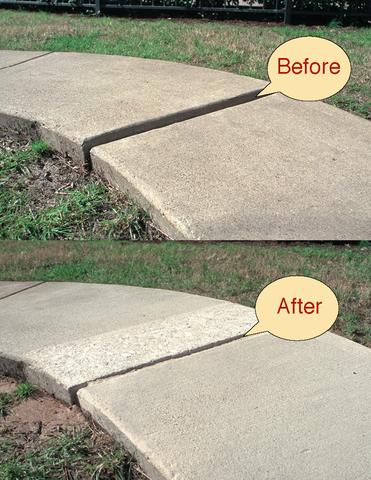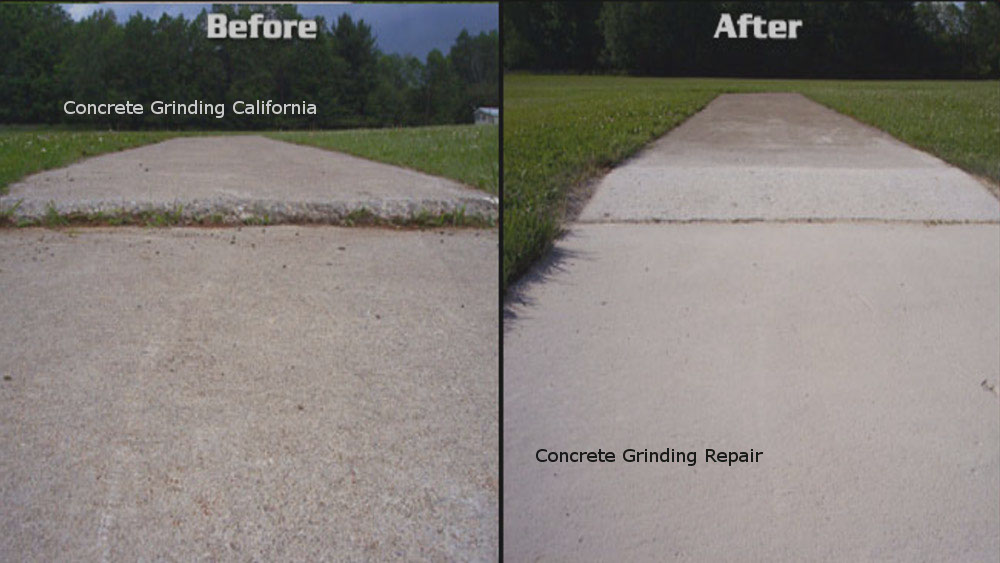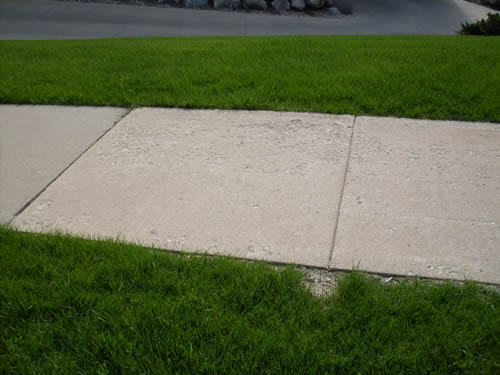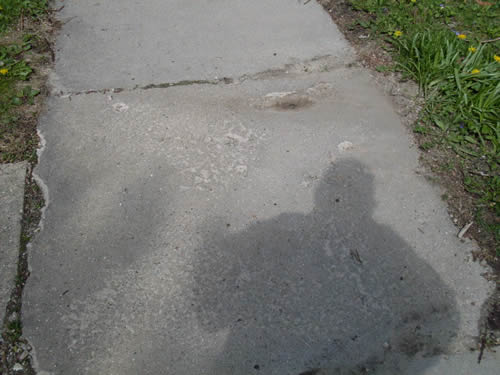Walkways/Steps
Passages for walking and the structures that allow for changes in vertical orientation.
This inspectable item can have the following deficiencies:
- Broken/Missing Hand Railing
- Cracks/Settlement/Heaving
- Spalling
Broken/Missing Hand Railing
Deficiency: The handrail is damaged or missing.
Level of Deficiency:
Level 1: N/A
Level 2: N/A
Level 3: The handrail for 4 or more stairs is missing, damaged, loose, or otherwise unusable.
Cracks/Settlement/Heaving
Deficiency:
- Visible faults in the pavement: longitudinal, lateral, alligator, etc.
-OR - Pavement that sinks or rises because of the failure of sub-base materials.
Note:
- Do not include cracks on parking lots/driveways or roads.
- For this to be a Level 2 deficiency, 5% of the walkways must be impacted, for example, 50 out of 1,000 square feet.
- Relief joints are there by design; do not consider them cracks.
- Repaired/sealed cracks should not be considered a deficiency.
Level of Deficiency:
Level 1: N/A
Level 2: Damaged, as defined above, is greater than ¾ inch, hinging/tilting, or
missing section(s) that affect more than 5% of the property's walkways/steps.
Level 3: N/A

Comment:
Level 2: If the walkways or steps could cause tripping or falling, you must
manually record this deficiency under "Hazards (Health and Safety)."
Spalling
Deficiency: A concrete or masonry walkway is flaking, chipping, or crumbling, possibly exposing underlying reinforcing material. This is a defect if 5% or more of the property's walkways/steps are affected. For example, 50 square feet out of 1,000 square feet.
Note: When observing traffic ability, consider the capacity to support people on foot, in wheelchairs, and using walkers.
Level of Deficiency:
Level 1: More than 5% of the walkway/steps have small areas of spalling, 4 inches by 4 inches or less.
Level 2: More than 5% of the walkway/steps have large areas of spalling, larger than 4 inches by 4 inches, and this affects traffic ability.
Level 3: N/A
